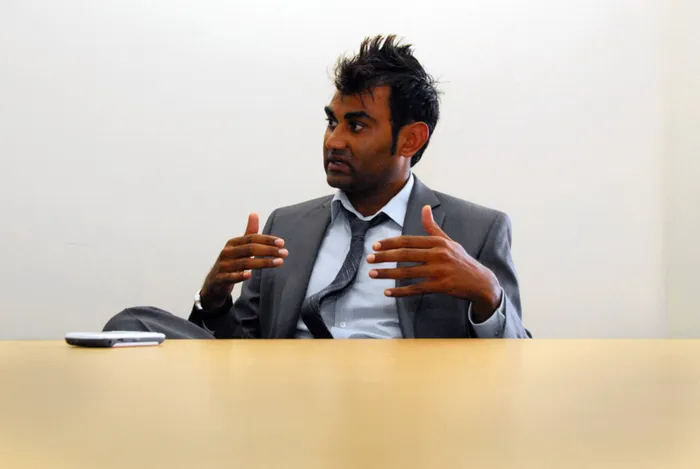SA doctor rewarded for TB work

740 05/02/2012 Dr Bavesh Kana, a biomedical scientist who is one of two South African’s to be awarded with an international research grant. Picture: Ihsaan Haffejee 740 05/02/2012 Dr Bavesh Kana, a biomedical scientist who is one of two South African’s to be awarded with an international research grant. Picture: Ihsaan Haffejee
He read and re-read the message on his iPad. Convinced he was reading it wrong, he turned to the person next to him for confirmation.
“It looks like you’ve won something!” the stranger exclaimed.
Quickly, Dr Bavesh Kana, 37, made his way to the top of the Rockefeller Centre in New York to call his wife in SA with the good news.
Kana, a senior research scientist and unit head of the Wits Centre of Excellence for Biomedical TB Research, had just heard he was one of 28 top biomedical scientists chosen from 12 countries for the prestigious Howard Hughes Medical Institute’s inaugural International Early Career Scientist Award.
He was chosen from among 760 applicants for his keen interest in what triggers latent TB.
Kana is working towards treating TB before it becomes active.
Latent TB infection is a non-symptomatic or contagious bacterial infection that lies dormant in a person’s body.
Kana said TB was a two-phase disease. Most of those infected carried the latent infection, but, for reasons not yet known – and which will be the focus of his research – “something happens in the bug that activates the infection”.
Anything from a compromised immune to advancing age to chronic diseases of life could contribute to the activation of TB.
Kana believes TB could be eradicated through a multi-pronged approach to treatment and diagnosis. “If we understand why it does what it does, we can actually stop it.”
In SA, around 558 per 100 000 people have TB, but tens of thousands more are carrying a latent TB infection and don’t know it.
Worldwide, around 2 billion people are infected with latent TB infection and they carry a 10 percent life-time risk of developing the disease.
“We need to understand the basic behaviour of the organisms to better understand what happens in the clinic, otherwise we’re always going to be putting a band aid over a broken leg, trying to fix a big problem with a small intervention.”.
Kana will receive a $650 000 (more than R5m) grant over the next five years for research he hopes will produce interventions to speed up TB diagnosis – “the Achilles heel of TB in SA”. - The Star